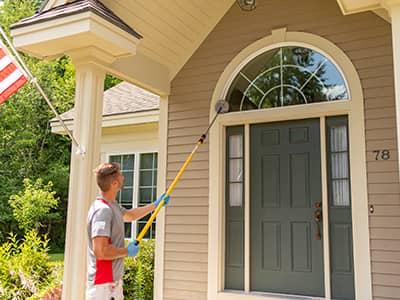Despite your best decluttering and pest-proofing efforts, mice can still find their way into your home. If you notice signs of an infestation—like droppings, gnaw marks, or scratching noises—contact Pine State Pest Solutions for assistance. Our locally owned and operated pest control company offers effective rodent control services in Auburn, Scarborough, and elsewhere in our multi-county service area.
To eliminate rodents, we’ll send out a pest control specialist to complete a thorough rodent evaluation and then develop and implement a personalized rodent control plan that may include:
While on-site, the pest control pro will also identify conducive conditions on the property that may be attracting rodents.
In addition to our stand-alone rodent control services, our Maine pest control company offers ongoing home pest control services that target mice and rats as well as other common household pests. Check out our Home Protection Plan below or give us a call for more information.
Pine State’s Home Protection is an affordable pest control plan that is ideal for homeowners who want general pest control services that target common house-infesting insects and rodents.
When you sign up for this ongoing service, you’ll receive an initial service visit to treat the existing pest problem and then seasonal service visits spread out over the year to ensure pests stay out. That’s a total of four services annually.
Pests covered under Pine State’s Home Protection plan include carpenter ants, cornfield ants, crazy ants, field ants, little black ants, pavement ants, carpet beetles, cigarette beetles, drugstore beetles, flour beetles, ground beetles, hide beetles, larder beetles, saw-toothed grain beetles, warehouse beetles, boxelder bugs, carpenter bees, centipedes, clover mites, American cockroaches, brown-banded cockroaches, wood cockroaches, field crickets, house crickets, European earwigs, firebrats, bald-faced hornets, European hornets, deer mice, house mice, millipedes, Angoumois grain moths, drain moths, Indian meal moths, Mediterranean flour moths, mud daubers, Norway rats, paper wasps, pill bugs, rice weevils, silverfish, sow bugs, springtails, cellar spiders, daddy longlegs spiders, house spiders, jumping spiders, sac spiders, wolf spiders, Western conifer seed bugs, and yellow jackets.
Sign Up Today!
*Some exclusions apply- please see your agreement

 Pine State Pest Solutions received an average rating of
Pine State Pest Solutions received an average rating of 

